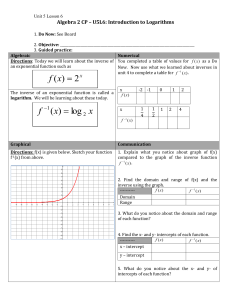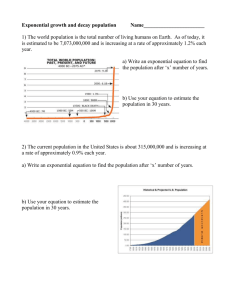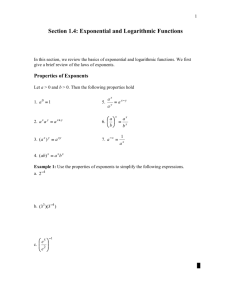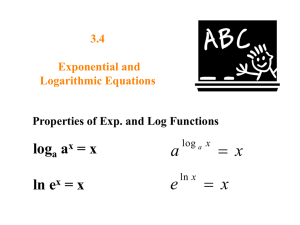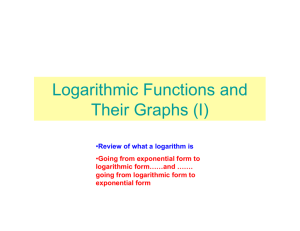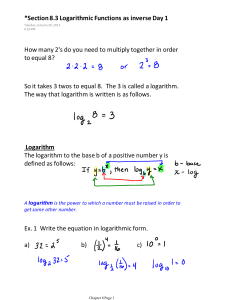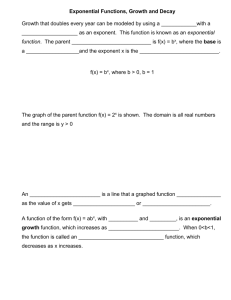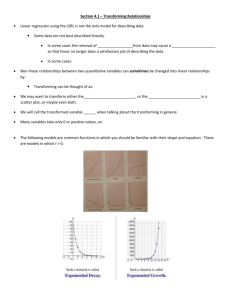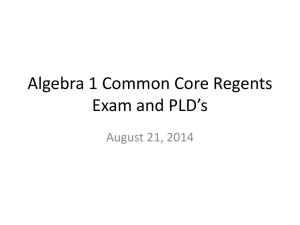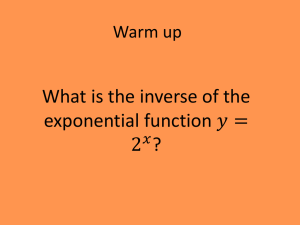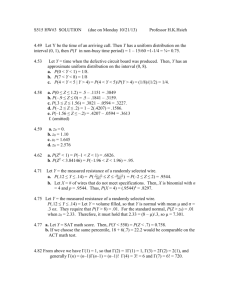Solving Exponential & Logarithmic Equations: A Guide
advertisement
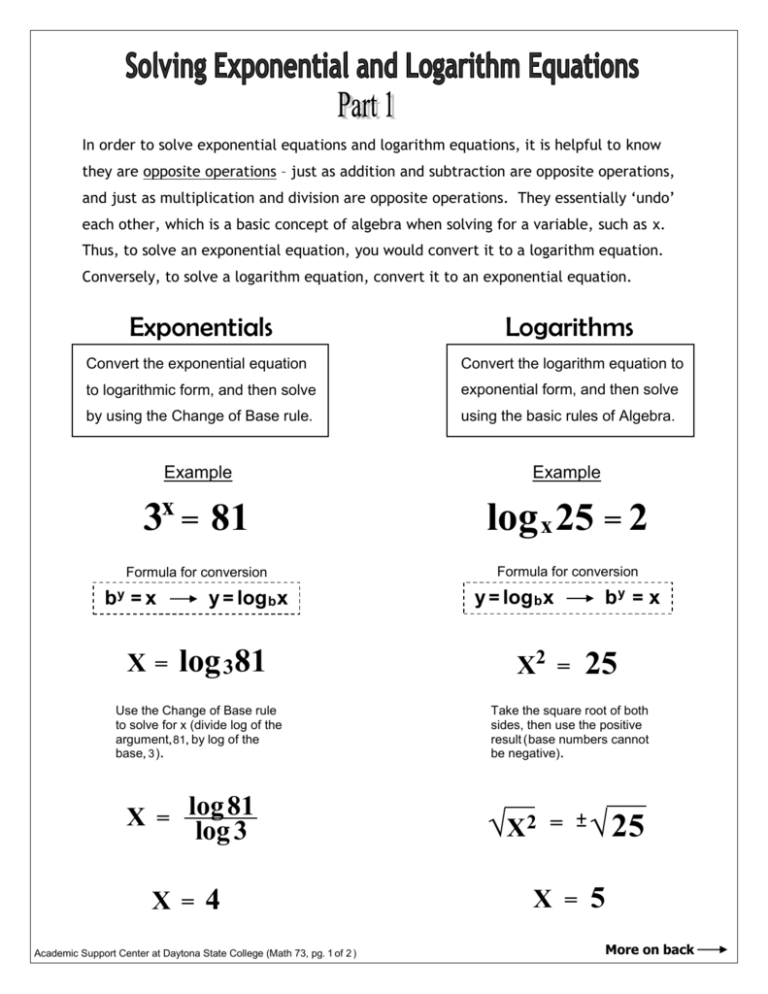
In order to solve exponential equations and logarithm equations, it is helpful to know they are opposite operations – just as addition and subtraction are opposite operations, and just as multiplication and division are opposite operations. They essentially ‘undo’ each other, which is a basic concept of algebra when solving for a variable, such as x. Thus, to solve an exponential equation, you would convert it to a logarithm equation. Conversely, to solve a logarithm equation, convert it to an exponential equation. Exponentials Logarithms Convert the exponential equation Convert the logarithm equation to to logarithmic form, and then solve exponential form, and then solve by using the Change of Base rule. using the basic rules of Algebra. formula. Example Example 3x = 81 log x 25 = 2 Formula for conversion Formula for conversion by = x X= y = log b x log 381 Use the Change of Base rule to solve for x (divide log of the argument, 81, by log of the base, 3 ). X = log 81 log 3 X = 4 Academic Support Center at Daytona State College (Math 73, pg. 1 of 2 ) y = log b x X2 = by = x 25 Take the square root of both sides, then use the positive result ( base numbers cannot be negative). √ X2 = ± √ 25 X = 5 More on back Exponential Equations Logarithm Equations Before you can convert an exponential Before you can convert a logarithm equation to logarithm form, you must equation to exponential form, it must first isolate the term with the exponent. be condensed to a single logarithm. EXAMPLE 5 + EXAMPLE 2x - 3 = 32 Subtract 5 from both sides of -3 2x the equation to isolate the . 2x - 3 = 27 Convert to log form by = x y = log b x X-3 = log 2 27 Add 3 to both sides of the equation to isolate the x. X= log 2 27 + 3 Using the Change of Base rule, divide the log of the argument, 27, by the log of the base, 2. Then add 3. X= log 27 + 3 log 2 X ≈ 7.75 Check your answer by substituting the solution into the original equation. For accuracy, use the entire decimal. 5 5 5 ( ( 7.754887502 ) – 3 ) 2 = 32 +2 = 32 + 27 = 32 + ( 4.754887502 ) Academic Support Center at Daytona State College (Math 73, pg. 2 of 2 ) log 3(2X) - log 3( X + 1) = 0 Condense the equation to a single logarithm using the quotient rule. log 3 X2+X1 = 0 Convert to exponential form by = x y = log b x 30 2X = X+1 NOTE: Any number raised to the zero power equals 1. 1 2X = X +1 Multiply both sides by ( x + 1) to clear the fraction. Then solve for x. X + 1 = 2X X=1 You must always check log solutions; the argument can never be negative. In this case, the resulting argument is (+). log 3(2 (1)) - log 3((1) + 1) = log 3(2) - log 3(2) = 0 log 3( 2 ) = 0 2 log 3 1 = 0 0in progress of this handout is=still 0

